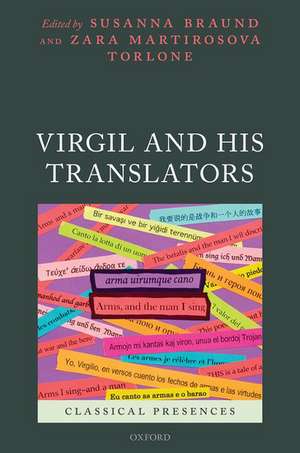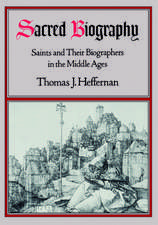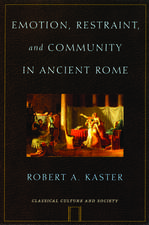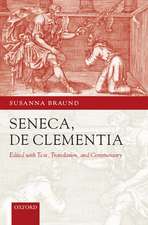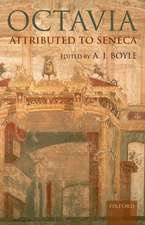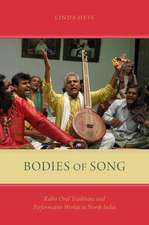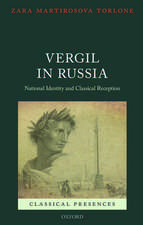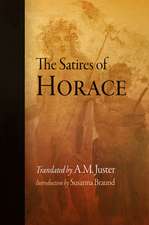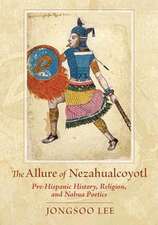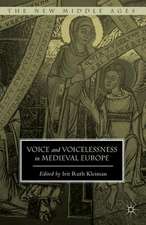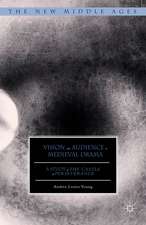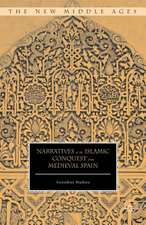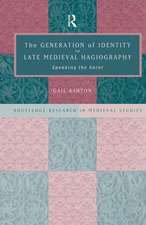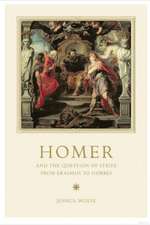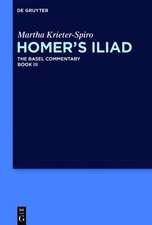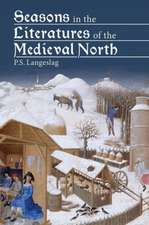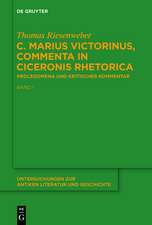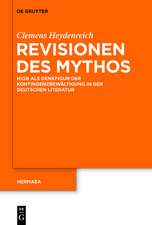Virgil and his Translators: Classical Presences
Editat de Susanna Braund, Zara Martirosova Torloneen Limba Engleză Hardback – 4 oct 2018
Din seria Classical Presences
- 27%
 Preț: 476.23 lei
Preț: 476.23 lei - 30%
 Preț: 493.26 lei
Preț: 493.26 lei - 30%
 Preț: 501.09 lei
Preț: 501.09 lei - 30%
 Preț: 593.43 lei
Preț: 593.43 lei - 6%
 Preț: 337.35 lei
Preț: 337.35 lei - 30%
 Preț: 540.38 lei
Preț: 540.38 lei - 28%
 Preț: 474.92 lei
Preț: 474.92 lei - 17%
 Preț: 501.92 lei
Preț: 501.92 lei - 13%
 Preț: 226.46 lei
Preț: 226.46 lei - 25%
 Preț: 687.80 lei
Preț: 687.80 lei - 19%
 Preț: 677.96 lei
Preț: 677.96 lei - 30%
 Preț: 821.25 lei
Preț: 821.25 lei - 28%
 Preț: 473.71 lei
Preț: 473.71 lei - 26%
 Preț: 614.24 lei
Preț: 614.24 lei - 17%
 Preț: 582.93 lei
Preț: 582.93 lei - 30%
 Preț: 538.77 lei
Preț: 538.77 lei - 30%
 Preț: 645.95 lei
Preț: 645.95 lei - 30%
 Preț: 501.52 lei
Preț: 501.52 lei - 18%
 Preț: 704.79 lei
Preț: 704.79 lei - 27%
 Preț: 519.88 lei
Preț: 519.88 lei - 16%
 Preț: 706.89 lei
Preț: 706.89 lei - 25%
 Preț: 554.32 lei
Preț: 554.32 lei - 16%
 Preț: 584.68 lei
Preț: 584.68 lei - 30%
 Preț: 562.14 lei
Preț: 562.14 lei - 30%
 Preț: 598.80 lei
Preț: 598.80 lei - 30%
 Preț: 617.54 lei
Preț: 617.54 lei - 25%
 Preț: 612.31 lei
Preț: 612.31 lei - 30%
 Preț: 589.73 lei
Preț: 589.73 lei - 30%
 Preț: 789.84 lei
Preț: 789.84 lei - 30%
 Preț: 600.20 lei
Preț: 600.20 lei - 30%
 Preț: 611.82 lei
Preț: 611.82 lei - 29%
 Preț: 1083.87 lei
Preț: 1083.87 lei - 30%
 Preț: 720.23 lei
Preț: 720.23 lei - 19%
 Preț: 326.97 lei
Preț: 326.97 lei - 26%
 Preț: 760.17 lei
Preț: 760.17 lei - 30%
 Preț: 833.88 lei
Preț: 833.88 lei -
 Preț: 307.88 lei
Preț: 307.88 lei - 28%
 Preț: 446.91 lei
Preț: 446.91 lei - 30%
 Preț: 721.88 lei
Preț: 721.88 lei - 30%
 Preț: 575.88 lei
Preț: 575.88 lei - 30%
 Preț: 598.02 lei
Preț: 598.02 lei - 30%
 Preț: 803.03 lei
Preț: 803.03 lei - 30%
 Preț: 733.67 lei
Preț: 733.67 lei - 30%
 Preț: 701.54 lei
Preț: 701.54 lei - 30%
 Preț: 601.52 lei
Preț: 601.52 lei - 30%
 Preț: 747.48 lei
Preț: 747.48 lei - 30%
 Preț: 556.05 lei
Preț: 556.05 lei - 30%
 Preț: 818.03 lei
Preț: 818.03 lei
Preț: 750.28 lei
Preț vechi: 861.93 lei
-13% Nou
Puncte Express: 1125
Preț estimativ în valută:
143.56€ • 150.43$ • 118.68£
143.56€ • 150.43$ • 118.68£
Carte tipărită la comandă
Livrare economică 01-07 aprilie
Preluare comenzi: 021 569.72.76
Specificații
ISBN-13: 9780198810810
ISBN-10: 0198810814
Pagini: 532
Dimensiuni: 163 x 241 x 36 mm
Greutate: 0.84 kg
Editura: OUP OXFORD
Colecția OUP Oxford
Seria Classical Presences
Locul publicării:Oxford, United Kingdom
ISBN-10: 0198810814
Pagini: 532
Dimensiuni: 163 x 241 x 36 mm
Greutate: 0.84 kg
Editura: OUP OXFORD
Colecția OUP Oxford
Seria Classical Presences
Locul publicării:Oxford, United Kingdom
Recenzii
this lucid and entertaining collection will serve as a helpful introduction to the complex ideological phenomena which motivate the translation of classical texts.
This lively and thoughtful collection, a long overdue contribution to Virgilian studies, applies the ideological hermeneutics pioneered by Theodore Ziolkowski in Virgil and the Moderns (1993), emphasizing the complex aesthetic, moral and political concerns involved in translating the 'classic of all Europe'.
This substantial volume will appeal to all Virgilians and reception studies scholars, evidencing as it does the many and varied permutations of three ancient source texts, and setting a new standard for breadth and depth in comparative surveys. The volume is also of use to students or those unfamiliar with any of the many languages treated: all quotations are translated, and a comprehensive bibliography is appended to the essays.
Every chapter of the book contains data and observations that will doubtless be of interest to specialist scholars of particular European and Asian languages.
Braund and Torlone have produced an international tribute to Virgil, a polyglot paean for the considerable effort expended through the ages on the transmission of the poet's limpid hexameters into a dizzying array of vernaculars. A testament to the success of the arduous endeavor is the urge the individual chapters engender both to search out familiar chestnuts of Virgilian translation for reexamination, and to explore unknown versions (and indeed unfamiliar languages). If Virgil is the premiere Roman poet, this book ably illustrates the widespread influence and enduring power and charm of his works.
Braund and Torlone have produced an international tribute to Virgil, a polyglot paean for the considerable effort expended through the ages on the transmission of the poet's limpid hexameters into a dizzying array of vernaculars. A testament to the success of the arduous endeavor is the urge the individual chapters engender both to search out familiar chestnuts of Virgilian translation for reexamination, and to explore unknown versions (and indeed unfamiliar languages) ... This is one of the most valuable Virgilian titles of its year. It deserves to be on the shelves of all libraries that service a classics curriculum, and in the personal collections of Virgilians and devotees of classical verse.
Virgil and his Translators needs no conceptual justification. It is a hugely rewarding collection of essays, full of analysis, perception and insights into the translation of Virgil over the ages.
This lively and thoughtful collection, a long overdue contribution to Virgilian studies, applies the ideological hermeneutics pioneered by Theodore Ziolkowski in Virgil and the Moderns (1993), emphasizing the complex aesthetic, moral and political concerns involved in translating the 'classic of all Europe'.
This substantial volume will appeal to all Virgilians and reception studies scholars, evidencing as it does the many and varied permutations of three ancient source texts, and setting a new standard for breadth and depth in comparative surveys. The volume is also of use to students or those unfamiliar with any of the many languages treated: all quotations are translated, and a comprehensive bibliography is appended to the essays.
Every chapter of the book contains data and observations that will doubtless be of interest to specialist scholars of particular European and Asian languages.
Braund and Torlone have produced an international tribute to Virgil, a polyglot paean for the considerable effort expended through the ages on the transmission of the poet's limpid hexameters into a dizzying array of vernaculars. A testament to the success of the arduous endeavor is the urge the individual chapters engender both to search out familiar chestnuts of Virgilian translation for reexamination, and to explore unknown versions (and indeed unfamiliar languages). If Virgil is the premiere Roman poet, this book ably illustrates the widespread influence and enduring power and charm of his works.
Braund and Torlone have produced an international tribute to Virgil, a polyglot paean for the considerable effort expended through the ages on the transmission of the poet's limpid hexameters into a dizzying array of vernaculars. A testament to the success of the arduous endeavor is the urge the individual chapters engender both to search out familiar chestnuts of Virgilian translation for reexamination, and to explore unknown versions (and indeed unfamiliar languages) ... This is one of the most valuable Virgilian titles of its year. It deserves to be on the shelves of all libraries that service a classics curriculum, and in the personal collections of Virgilians and devotees of classical verse.
Virgil and his Translators needs no conceptual justification. It is a hugely rewarding collection of essays, full of analysis, perception and insights into the translation of Virgil over the ages.
Notă biografică
Susanna Braund moved to the University of British Columbia in 2007 to take up a Canada Research Chair in Latin Poetry and its Reception after teaching previously at Stanford, Yale, London, Bristol, and Exeter. She received her BA and PhD from the University of Cambridge. She has published extensively on Roman satire, Latin epic poetry, and the passions in Roman thought, and has translated Lucan for the Oxford World's Classics series, Persius and Juvenal for the Loeb Classical Library, and also three of Seneca's tragedies. She was a Visiting Scholar at the Collège de France in 2014 and won a Killam Research Fellowship in the 2016 national competition for her project 'Virgil Translated'.Zara Martirosova Torlone is a Professor in the Department of Classics at Miami University, Ohio. She received her BA in Classical Philology from Moscow University and her PhD in Classics from Columbia University. She is the author of Russia and the Classics: Poetry's Foreign Muse (Duckworth, 2009), Latin Love Poetry (co-authored with Denise McCoskey; I.B. Tauris, 2014), and Vergil in Russia: National Identity and Classical Reception (OUP, 2015), as well as articles on Roman poetry and the novel, the Russian reception of antiquity, Roman games, and textual criticism. Her most recent publication is the co-edited volume A Handbook to Classical Reception in Eastern and Central Europe (with Dana LaCourse Munteanu and Dorota Dutsch; Wiley-Blackwell, 2017), to which she also contributed.
